Celebrating My Life
Amy Sequenzia won’t stop celebrating her autistic, disabled life.
I am writing this prompted by something John Elder Robison (I will refer to him by his initials, JER) wrote about Autism Awareness/Acceptance Month, in particular this quote:
“We may have gifts too, but disability remains the basis for diagnosis. Some autistic people are rendered non-speaking by their condition, and I can’t imagine who would celebrate that. Others live with significant medical complications like epilepsy. I’ve yet to meet anyone who celebrates that either.”
I commented that JER does not have to “imagine”. I am here, I celebrate being non-speaking, I celebrate my epileptic life (which is different from celebrating a seizure).
I celebrate my Autistic, Disabled life.
It seems illogical, but it is not, and I will explain why.
It is about assumptions, based on what is considered “normal”, how we are supposed to feel about things considered “difficult to live with”.
I am not able to speak, and I don’t want to speak.
I celebrate being non-speaking.
I celebrate being a good listener, when most speaking people interrupt each other, not always listening – really listening – to what the conversation partner has to say.
I celebrate being an activist for the right of every single person to be heard, no matter which method they use to communicate.
I love my speaking friends, including my best friend, but sometimes they are exhausting, with all the talk. I still celebrate their lives, noise and all, as I celebrate my quiet-but-listening (not silent, I am loud in my own way) life.
I do love you, speaking friends! I am not tired of you.
JER chose his words poorly, maybe he meant that he can’t imagine people celebrating being non-speaking because it is harder for us to be understood.
It is hard to have most of the world ignoring us, not allowing us time to communicate what we want to convey.
This is not because we are non-speaking it is because most people in the speaking majority are ableist, and because “normalization” leads the list of false assumptions about how we feel, being non-speaking.
I do not celebrate that majority or their assumptions about being non-speaking.
I celebrate myself, my life, and everything about me.
I do celebrate being non-speaking because I believe I am a better me when I am really listening and learning.
I celebrate being non-speaking because it is the only me I know, and because I can still “say” what I want to say, and fight for my rights, without oral speech.
I think that JER does celebrate us too, since he is sharing a book I edit with Elizabeth “Ibby” Grace, an anthology with essays written by people who are non-speaking all the time, or non-speaking some of the time.
The book is pretty celebratory!
Now, about epilepsy.
How can one celebrate being epileptic (remember, not the same thing as celebrating a seizure)?
First, JER’s premise is faulty. Epilepsy and autism are two completely different things.
Let me say this again:
Epilepsy and autism are two completely different things.
I cannot be myself and be non-autistic.
I can still be my Autistic self without epilepsy.
That should suffice.
I will go further though.
Do I celebrate having seizures? No. Having a seizure sucks, hurts, it can kill.
But they are part of my life, as are so many other disabilities I have, that are not autism either. I try to minimize the effects of the seizures, the number of seizures I have (almost every day) but:
I will not stop celebrating being me.
I have epilepsy. When I am not having a seizure, I am still epileptic.
As soon as the seizure ends, I can celebrate every single moment of my life again. And celebrate it even more, having gone through it and back.
A story to illustrate:
Recently, I had the worst seizure in 7 or 8 years. I could not type for two days. I could barely point to “y” for “yes”, and “n” for “no”. This happened during the night, before a morning presentation I was to give. I could have cancelled the presentation. I didn’t. I always prepare in advance what I want to say and the computer “speaks” what I typed. I decided to present, even though keeping my head up was almost impossible. I delivered my message, the one sad thing was that I couldn’t interact with the attendees and answer questions.
Still, there was reason to celebrate:
The ones who were there celebrated me.
I celebrated myself, epilepsy included.
I celebrated that I was able to push myself to be present and let people see who I am, epilepsy (post seizure) included.
I celebrated being Autistic and disabled, with everything that comes with my disabilities, epilepsy included.
Even though autism and epilepsy are two separate things, they are part of me and I cannot celebrate my life with one, and not another.
I will not wait for my seizures to disappear to celebrate every single moment of my life.
One third point: Living with significant medical complications is part of living. Not only Autistics have co-occurring medical conditions. If everyone is going to stop celebrating life because of medical conditions, the world will be a very sad and boring place.
I celebrate my life, always.
“That’s the thing about livin’
When you get here, you take what you’re given”
(Three Angels – HEADSTONES)
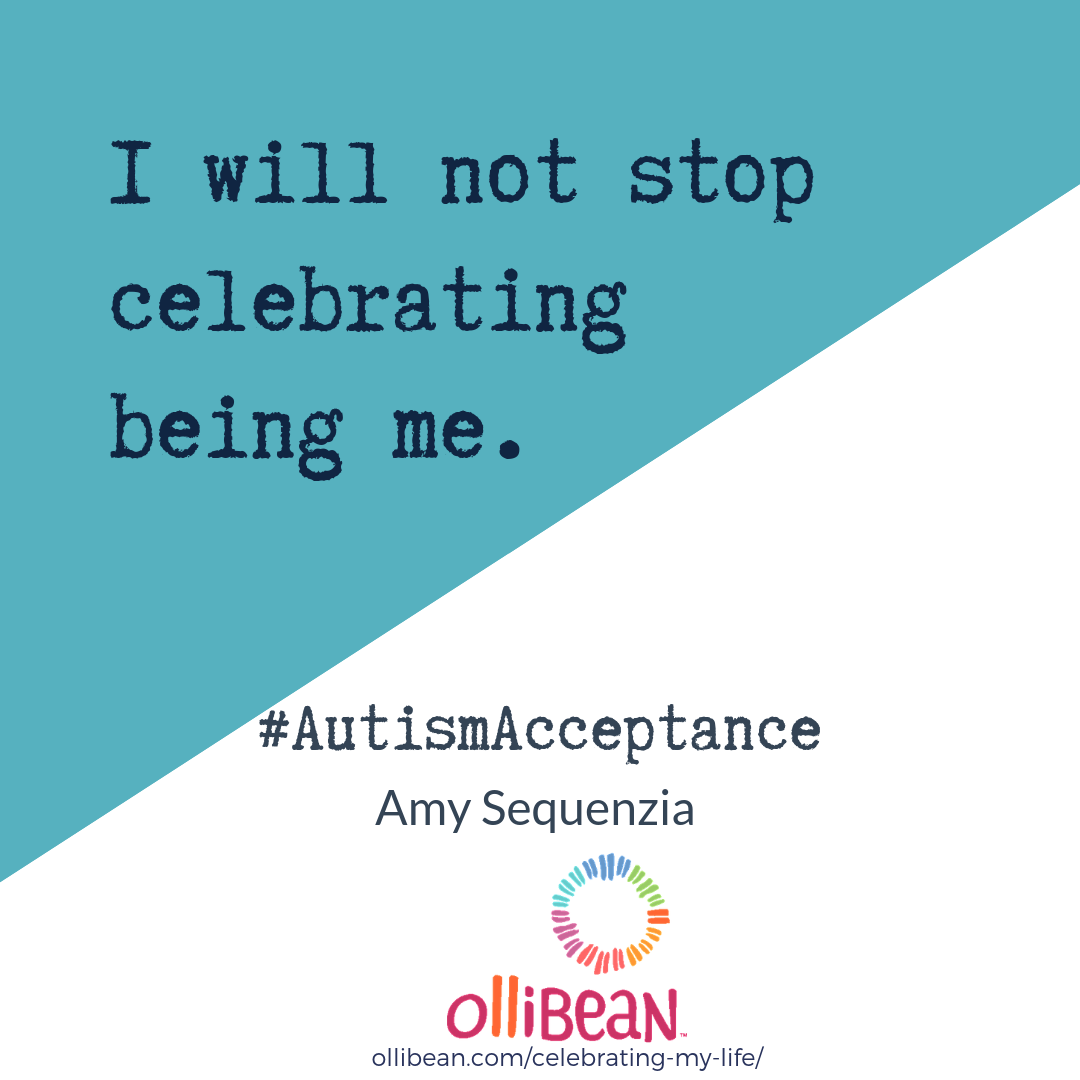
I will not stop celebrating being me.#AutismAcceptance, Amy Sequenzia on Ollibean


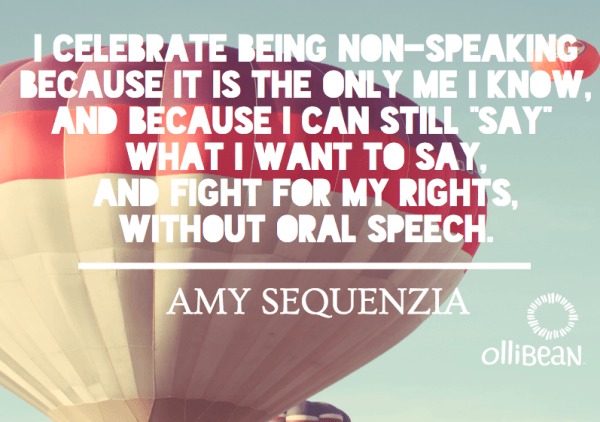
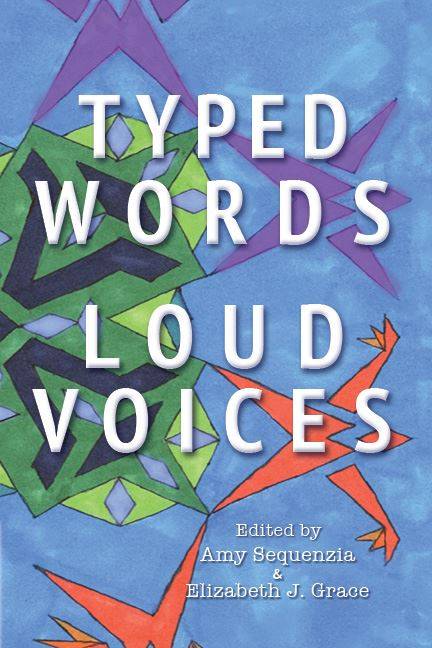

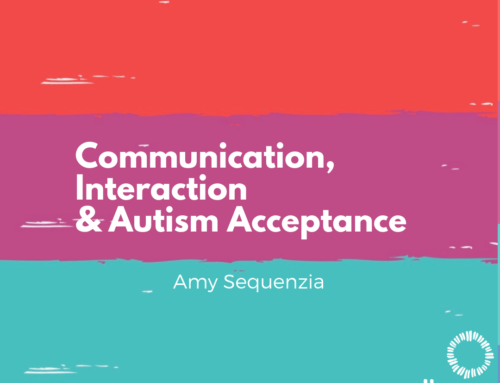
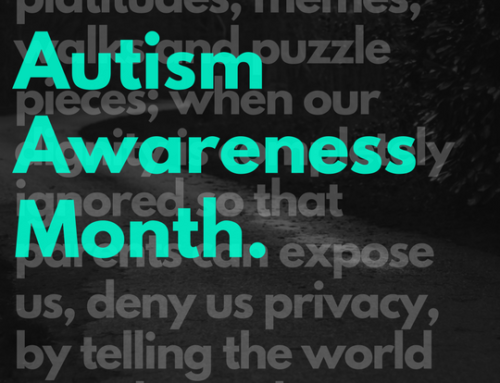
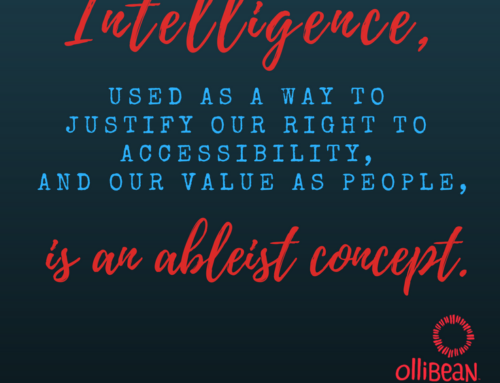
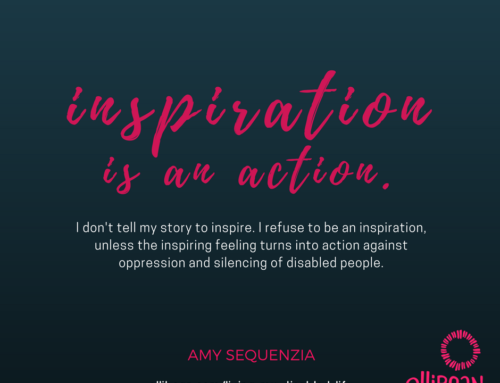
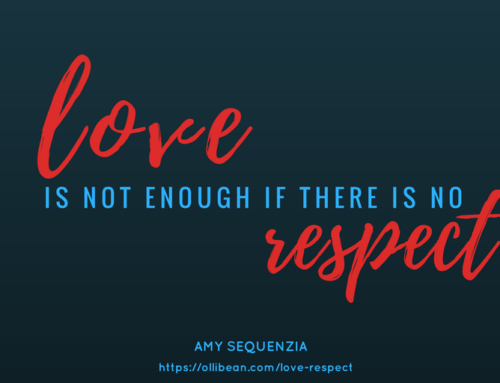
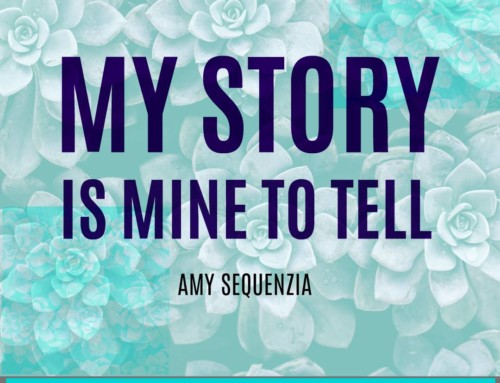
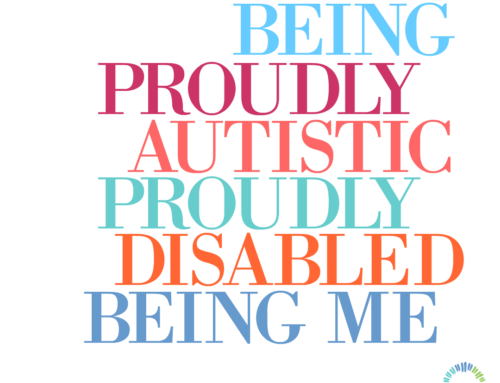
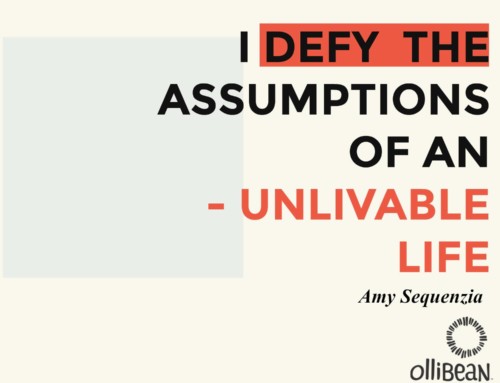
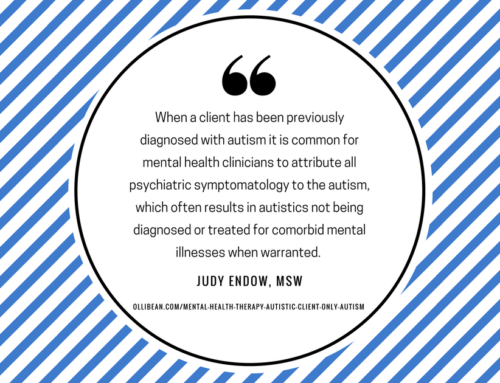
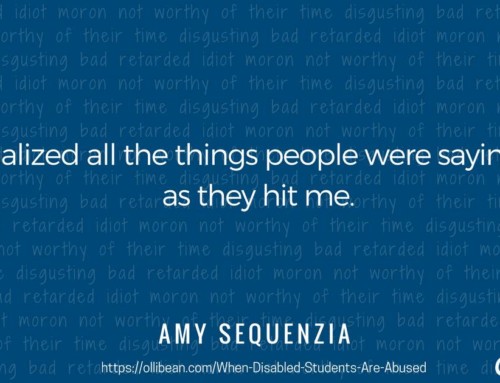

very beautiful words :)
You write so beautifully Amy <3 This is the dog that insisted Jillian play fetch, that diagnosed my seizures at 42 and inoperable skull base brain tumor and then was killed on me, and left Jillian a legacy to share with the world he bred more seizure alert Jack Russells…once I Free her, to get her autistic voice spoken in her own words as well, she has her job to do and she wants to…. she wanted to work and God gave us this gift to pay forward, we have to work it. Love your #1 fan ~Jett~ that crazy mama Aspergers bear ;)
Agreed all disabled life should be celebrated.
Your essay does illustrate that I chose my words poorly and I’m sorry if you found them disturbing. I certainly meant no criticism of the non speaking way of being.
While no one would choose to be broken, most of us accept the way we are without comment. Some -like you – are enthusiastic, while others just go along. There are some autistic people who say they are broken and don’t want to be, but most of us (autistic or otherwise) just trudge along as we are without comment.
So would it be fair to say that you’re not “celebrating being broken,” or “celebrating being disabled” but rather celebrating your natural state of being, with all that implies? It seems like that is what you are saying, and if so, what I meant to express.
If I break my leg I would not celebrate my new disability. But when we look at autism, I too celebrate my autistic traits because they make me what I am, even as I wish I were not disabled when I realize I can’t do a particular thing because I’m autistic. I tell myself that there are other things I CAN do because I’m autistic (which non-autistics can’t do) and that tradeoff is just what it is.
It’s different.
The original essay you are responding to was not well worded and did not convey the message I hoped to deliver. Instead it was taken rather differently by you and others, and I never intended that.
I have deleted the original essay and I thank you for your thoughts and response.